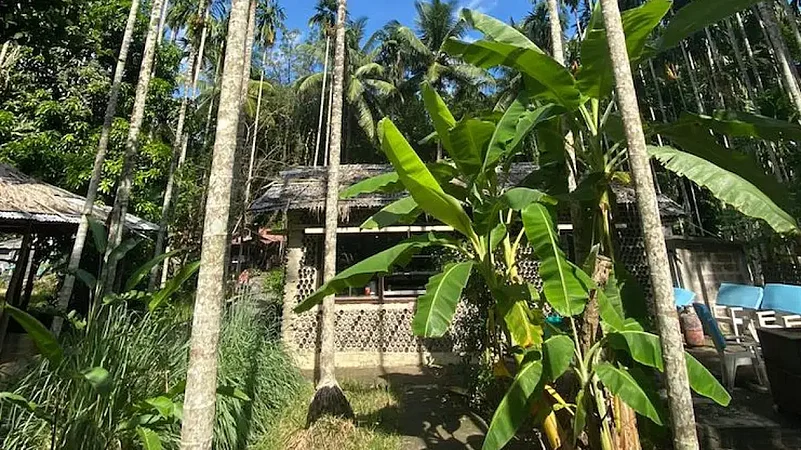It all started with love, passion, and a leap of faith. Located on Havelock Island in Andaman, Outback Havelock is an eco-luxury resort designed by Zorawar Purohit (Director at Outback Havelock) and his partners with an aim to make the best of the resources available on the island, even if it required them to visit dumpyards and use half a million recycled plastic bottles.
Growing up in a fauji family, it was easy for Purohit to find his comfort zone in travelling, and staying outdoors. Even the most crucial decision of his life — switching from the job of a political analyst to a full-time diver — was blended with a desire to explore the unexplored. The diving career did not just take him to the waters of Maldives and Thailand but also opened a new chapter for him in the Andamans — the chapter of entrepreneurship which he had no prior knowledge and experience about.
Situated in the Bay of Bengal, the Andamans constitute of about 300 islands, each of which is recognised for its clean white beaches, tranquil tropical climate, indigenous species, rich marine reserves, zero industrial occupancies, and a plethora of adventure activities.
“My heart is in the Island," says Purohit, who landed on the islands eight years ago and struggled through days with just Rs 5,000 in his pocket. “Andaman is a hybrid of Thailand’s tourism and Maldives’ elitism”, he says. The lessons of living minimally and sustainably were further ingrained as he started experiencing diver life. From using wooden boats to appreciating the aquatic life, his new home inspired him to think differently than his city counterparts. The culture of sustainability practiced among divers on the islands encouraged Purohit to ideate Andaman’s first and only recycled eco-project, Outback Havelock.
Built using 5,00,000 plastic bottles, and 500 kilograms of rubber, the resort is an innovative answer to the improper disposal system on the island. “The bottles were often burnt in the dumping yard," says Purohit, “So, we tried to use those bottles for some good.”
With no background in the field of architecture, he and his partners surfed through information on the internet to understand the process of building plastic walls with bottles. After gaining the required knowledge, they went about gathering loads of bottles, and enlisting the help of hired labourers who executed the building techniques.
From stocking up rooms with bottles to jumping on mock walls to test their strength, the process of building an eco-luxury resort demanded a little more patience than the usual brick and mortar construction.
“The structure made of plastic is five times stronger and ten times more waterproof,” says Purohit, “It not only helped us in minimising the effect on our environment but also saved us from spending those extra few bucks.”
Established a thirty-second walk from the pristine blue sea, the resort has eight jungle view luxury rooms decorated with recycled glass bottles and the 60-seater Café Salt Water made from 1.5 lakh plastic bottles.
Adding to the theme of the café is its open kitchen which sources fresh produce from local fishermen, and serves some delicious Indian, Continental and Oriental dishes. Recently, with COVID-19 protocols implemented in Havelock Island, it has also become the first smart café to go paperless on the island.
“Initially, we were unsure of how people would perceive our resort and whether it will appeal to them or not,” says Purohit, “But gradually, we began receiving positive reactions from everyone.”
Although the pandemic had stalled various businesses on the island, the Andaman government improved the situation by implementing mandatory restrictions — RT-PCR tests on arrivals, and rapid test facilities within the islands. This set of precautions made the islands a preferred destination over other mainland places, and also provided businesses like Outback Havelock a rejuvenated faith to restart their services.
“As local businesses, we need tourism to come back on the island,” says Purohit, “We are motivated to serve guests and provide them with safe and unforgettable experiences.”





















